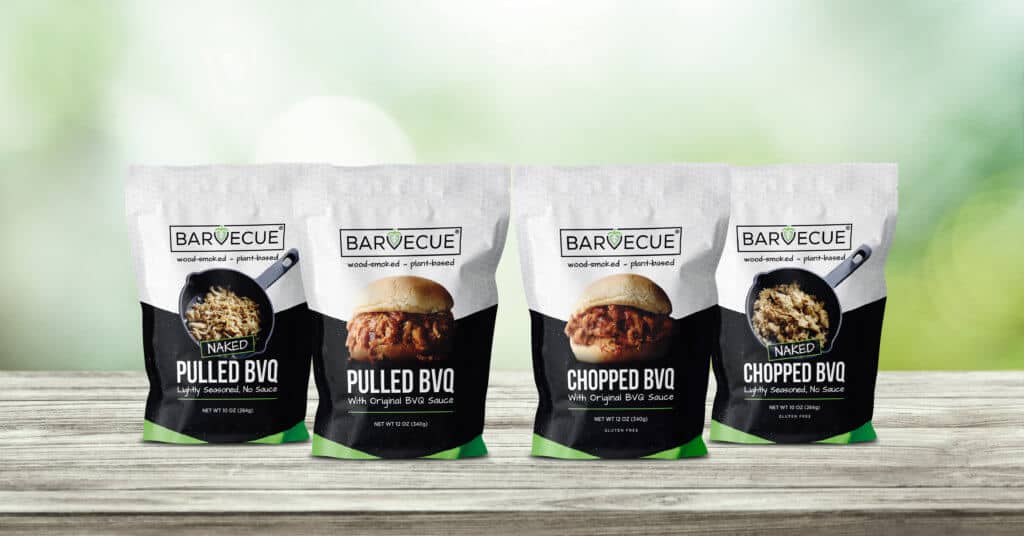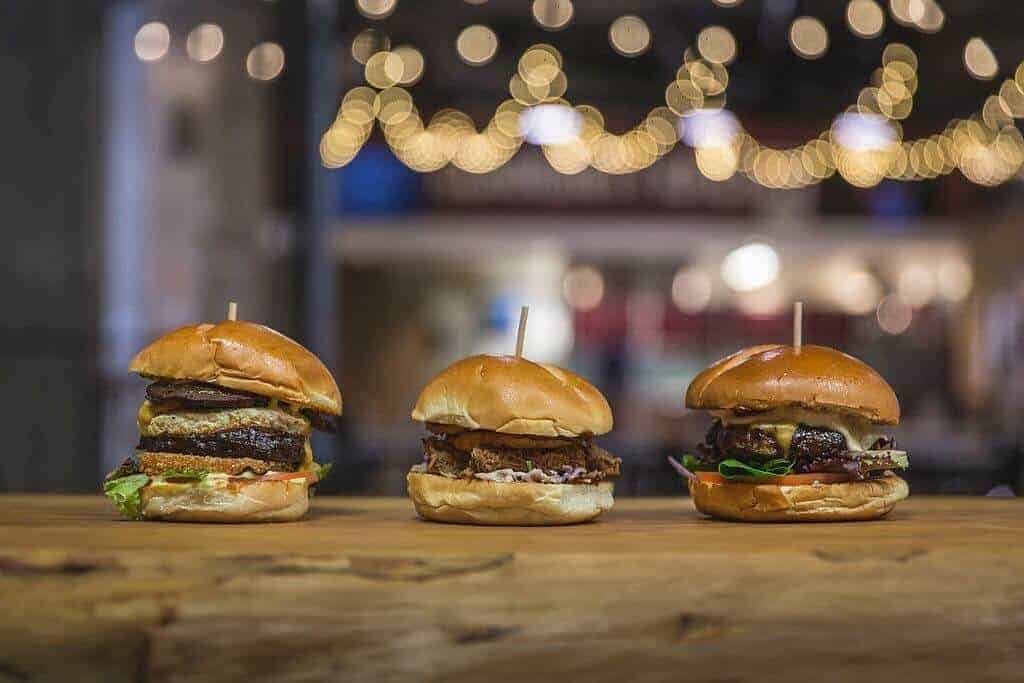Elysabeth Alfano, Plant Powered Consulting Founder and Host of the Plantbased Business Hour, proffers: With more plant-based edible products out in the marketplace than ever before, it begs the question – do we need more plant-based foods?
Plant-based food consumption is up 11%, compared to the overall food market of 2% per the Good Food Institute. The abillionapp open-source data shows that the availability of plant-based products doesn’t begin to meet the demand. Thus, at first blush, it would seem that we do need more plant-based products.
However, I would argue that more plant-based products aren’t the only answer right now. Don’t get me wrong, I am all behind what I call VegTech and the growing innovation behind plant-based products. For many reasons, such as job growth, sparing environmental resources, the betterment of human health and animal welfare, not to mention answering the call of demand, I fully support the entrepreneurship behind novel plant-based products.

Yet, more than innovation in the plant-based space is the need for co-manufacturing facilities. Having more plant-based production facilities is the only way to produce the quantity needed to meet growing consumer demand from flexitarians. In short, if plant-based companies can’t produce enough products to populate shelves from coast to coast, the meat eaters wanting to move to healthier and socially conscious options can’t buy them.
The lack of co-manufacturing plants that can take on the production of plant-based products, specifically the wet extrusion production necessary for many alt-proteins, is indeed the bottleneck issue that plagues the plant-based industry. To paraphrase plant-based investor Adam Slutsky in a recent Plantbased Business Hour interview with me: What good does it do to have enough production to only distribute to a few hot spots like Los Angeles, San Francisco and Brooklyn? We need national and international distribution.
Uphill battle
This isn’t such an issue for dry manufacturing like chips and powders, but for plant-based meats, it is an uphill battle. Firstly, plant-based meats require different machinery and techniques, and thus, knowledge, than those available in regular meat processing plants. For all the ethical vegans, of which I am one, that’s a relief because it is nice to know that your plant-based meat isn’t on the same production line as meat. However, re-inventing the wheel isn’t as easy or as cheap as all that for plant-based start-ups.

Co-Founder of Good Catch and a recent guest on the Plantbased Business Hour, Chris Kerr had this to say about why Good Catch built a 42,000-square-foot plant in Ohio: “Indeed, there is a dearth of high moisture extrusion co-manufacturers in the US.
More to the point, if all you want to make is a single type of meat, let’s say white meat chicken, then one co-man can go a long way. But the moment you stray from this to, say, the likes of tuna, this specific piece of equipment may not be appropriate. In fact, each extruder can have its own characteristics and its output can be quite unique-even in the same plant. In the case of Good Catch, we simply could not find any company in the U.S. that could make our tuna flake product.
Handle your own business?
Good Catch could have negotiated with a co-man and installed our unique equipment in someone else’s factory-something that actually happens pretty regularly in the food sector. But doing so then loses control of the IP since someone else’s employees end up operating the equipment.”
Things get even trickier if the plant-based product has a specialty feature. “Barvecue is wood-smoked. There just aren’t a lot of options for that with plant-based co-manufacturers,” Lee Cooper, a Founder of Barvecue, shared with me recently. The company currently handles its own production.

The CEO of Blackbird Foods, Emanuel Storch, explained why that company has decided to build its own plant. “Although it will require up front capital investment, we see it as an opportunity to create a specialized streamlined process specific to our products. This will allow us to achieve price parity with animal-based proteins like chicken or beef. It is also important that our products are manufactured in a dedicated vegan facility, which is difficult to find when working with co-manufacturers.”
For some, it may be difficult to fathom, but meat companies can actually play a big role here. The deep pockets can afford the capital investment of building new manufacturing plants, such as Lightlife’s new 460,000-square-foot manufacturing plant in rural Indiana costing $310M, funded by owner company and meat producer Maple Leaf. It is the largest plant-based production facility in the U.S. and offers 420 jobs to the surrounding communities in animal-ag Indiana. Assuming a household of four, that’s 1680 people dependent on a plant-based paycheck. And nothing converts people like a paycheck.
The issue of scale
So, where do we go from here when most small companies can’t financially back a minimum of $30M for a small plant, let alone a large one at $310M, and don’t want to sell to a meat company? Further, by having to focus on production and scaling, the entrepreneur has to take their energies away from selling the product and consumer-interfacing. The more efficient and effective way would be to have a plant-based co-manufacturer.
For efficiency, Kerr related that Good Catch would have gone the way of a co-manufacturer had there been the option. “Proprietary, independently owned plants will slow the process down,” he added.

But the co-manufacturing options for plant-based protein remain few and far between, despite rising market demand for plant-based products. Recent guests on The Plantbased Business Hour, James Davison (President) and Mitchell Scott (CEO), of the Very Good Butchers commented on same and explained why they are investing in their own plant. “Co-packing hasn’t been able to keep up with the demand for plant-based options. In addition to the smaller start-up food brands looking to scale through co-packing, you also have large grocery store chains wanting to roll out their own plant-based ‘store brands.’ This is resulting in much more demand than supply.”
So, in this critical time of plant-based growth and expansion, how do we solve the bottleneck issue of production for plant-based brands?
Small means vulnerable?
Dave Reynolds, Sales Manager: Protein Solutions and Ingredients for the Buhler Group, the Swiss multinational plant equipment manufacturer, elaborated. “With the lack of co-manufacturing in wet-extrusion, the mid-size and large companies will continue to make investments for their own products and expand capacities at their own facilities. However, this may leave the smaller, but very innovative startups vulnerable in bringing their products successfully to commercialization.
As more product development continues and more plant-based products are launched utilizing wet extrusion, co-manufacturing will be needed to help everyone accelerate their manufacturing of plant-based products and give the industry more production volume. As we see various investments taking place in the industry, there is an opportunity right now for investors to get into the co-manufacturing space and be the bridge for so many companies that need to get over the ‘Valley of Death’.”

More and more plant-based brands enter the market to high expectations and visions of changing the world, only to realize that they can’t scale for production to satisfy national, let alone global demand. The classic entrepreneurial cash flow crunch eventually befalls these companies, and they find it hard to make it to the finish line for a Beyond Meat-type IPO. Most are destined to sell to meat companies that have the production and distribution facilities.
Wouldn’t it be better if the plant-based products could get there on their own? Wouldn’t it be great to invest in companies that make it to the stock market 100% plant-based rather than investing in meat companies that picked up some plant-based properties?
Fry my vegan burger
In the end, I support and herald all the young innovators, scientists and entrepreneurs who are moving forward with plant-based products in the marketplace. It is no easy task. I salute you! You fry my vegan burger.
But where are the plant-based manufacturing plants for these plant-based foods? I am asking you, co-manufacturing industry and investors: what the heck are you waiting for? There is money to be made here. There are plant-based clients waiting in line. There is a consumer demand that can’t slow – logically, the inefficient system of meat can’t persist because the resources of land and water won’t allow it as the world population and demand for food grows, so – you, like I, can see the future. It is plant-based. Moral compass aside. The future is plant-based because it has to be.
Get in the game, already.
Elysabeth Alfano is the Founder of Plant Powered Consulting. She hosts The Plantbased Business Hour, The Plantbased Business Minute and is the Consulting Managing Director, North America of vegconomist.





